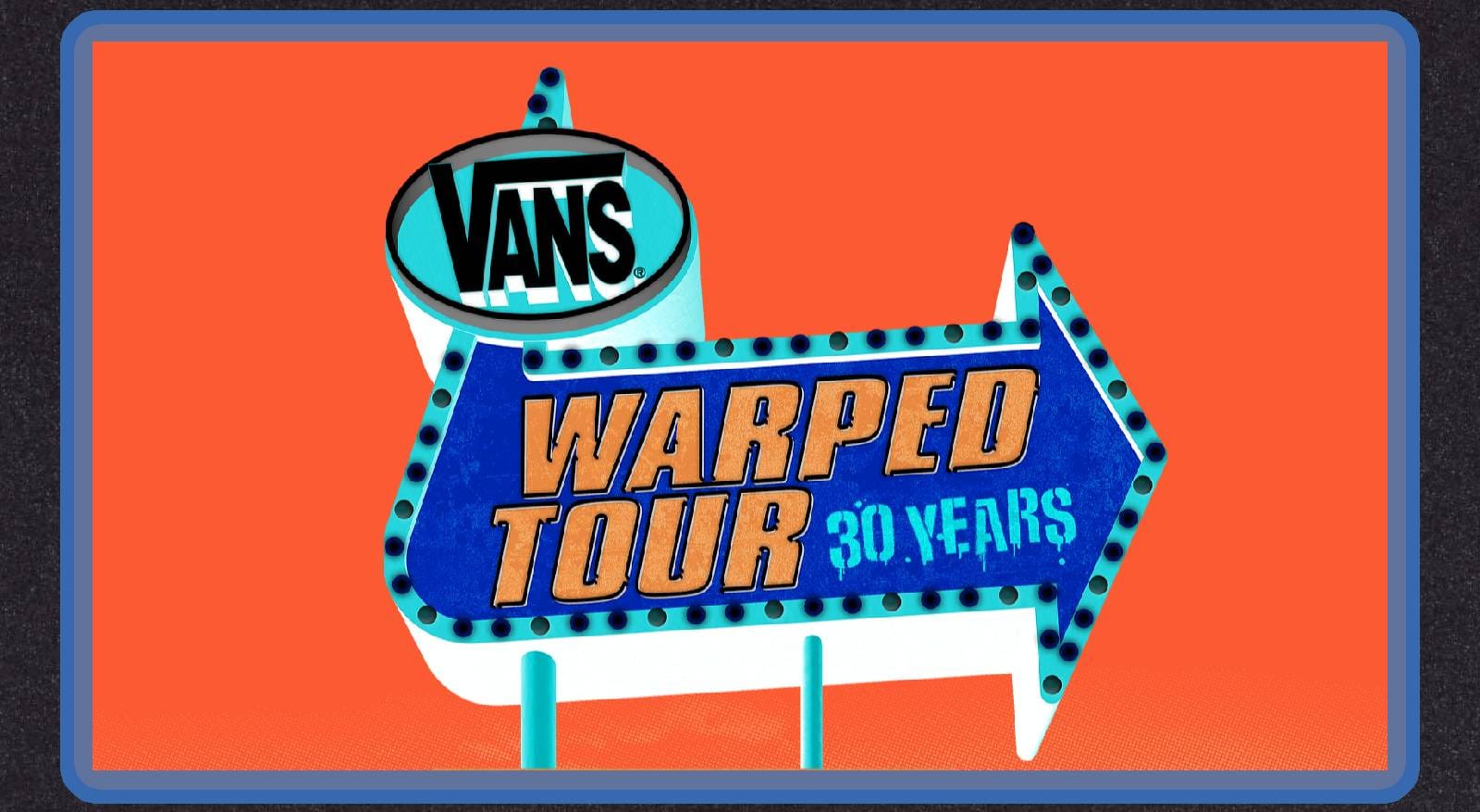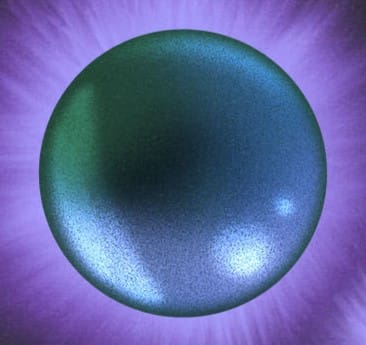Warped Tour's 2025 reboot won't serve those who need it most
The punk festival's tepid return is formatted for millennial nostalgists, not the teens of today.

Warped Tour is slated to return in a limited capacity in 2025. As of this writing, the lineup has yet to be revealed, but I've already seen enough to know that the punk festival's tepid revival is just the latest spawn of millennial reboot culture. A group of business people, however noble their intentions may be, resuscitating the corpse of an entity that died years before, and deserves to rest peacefully – or not – in the memories of those who knew it when it was living.
No matter how hard millennials squint through their rose-tinted lenses, the feeling of watching A Day to Remember in a sweltering parking lot will never be the same as it was in 2012. And today's teenagers – the group who should, out of anyone, benefit most from Warped Tour's return – will not be granted an equitable experience to the one my generation had. We can debate whether that's good or bad, but what's undeniable is that Warped Tour as it was is over; the cultural era it defined, the musical landscape it nourished, and the economy that enabled it to exist belong to history now.
Warped Tour concluded in 2018, and for better or worse, nothing has filled the vacuum it left in the musical communities it served – because nothing feasibly could. Its mere existence was a near-impossible logistical feat that miraculously rattled on its hinges for 24 years straight. No other traveling music festival – not Lollapalooza before it or founder Kevin Lyman's short-lived metal spinoffs, Mayhem and Uproar Festival – rivaled the scale and consistency of Warped Tour: 80-odd bands caravanning across the U.S. for six weeks straight, unraveling into a seven-stage scene kid city by 11 a.m. and rolling back up into a convoy of luggage by nightfall, day in and day out, rain or shine.
Despite the brutal living conditions for most of the tour's smaller bands, the fact that Warped Tour happened at all was an operational marvel. And whatever you think of the genres that came to define it (pop-punk and metalcore, specifically), there's no pretending that it wasn't a cultural mecca for a several generations of alternative music fans – many of whom, like me, have found their way to other music scenes and spaces in the years since. Warped Tour certainly had its ugly warts; the platforming of well-documented sexual abusers, rampant misogyny leaking out of the stage monitors, not nearly enough water to keep irresponsibly sweaty kids like me hydrated in the blazing heat. And yes, many of the bands made embarrassing music. However, I detest the smug scolds who write the entire institution off as a factory for sexual misconduct and a beacon of corporate tackiness – as if the scourge of abuse never reached the vaunted shores of Titos Vodka-funded indie-rock and blog-approved DIY punk during the same time period.
Yes, bad things sometimes happened at Warped Tour. Yes, it was often emblematic of how punk and metal subculture had been cleansed and commodified for mass consumption. It was also extremely fucking fun. It was an accessible gateway into alternative music for me and all of my friends. It launched innumerable bands' careers and was a primary engine for several whole genres of music. And its impending resurrection in 2025 is all but guaranteed to fail. Maybe not economically; I wouldn't be surprised if its three dates sell out. But as an immobile festival priced and formatted like any other summer rock fest, there's no chance that it'll be able to rekindle the magic of its glory years, or provide the same value to today's teenagers that it provided to my friends and I in the early 2010s – and those before us in the 2000s and mid-Nineties. And that's unfortunate to think about.
My friends and I were the target audience for Warped Tour: suburban teenagers who lived in a third-market city (Rochester, NY) where touring bands of the metalcore and pop-punk variety rarely came through. I was lucky to see three or four shows a year that catered to my high-school interests, but Warped Tour brought all of my favorite bands to a parking lot just 45 minutes from my house. I don't think I ever paid more than $25 to attend, and I got every penny's worth by never once sitting down or eating, and taking no more than a few swigs of water for the entire 12-hour bonanza. How could I possibly justify wasting 15 minutes in a line for chicken tenders when I had 25 bands to crowd-surf for and not a second to spare between sets?
As soon as my friends and I passed through the gates at 10 a.m., we'd break into a full sprint across the dusty field, swerving between the I Love Boobies tent and the Alternative Press booth (where I fantasized about one day sitting under), to reach the Vans tent where we'd pay $2 for a paper copy of the day's schedule. I'd borrow a pen to highlight the must-sees and curse every heartbreaking overlap between stages, wagering if it was worth it to cut out halfway through The Devil Wears Prada at 4:15 to see Set Your Goals at 4:35. Each of those decisions was weighted with the gravity of a presidential war room. Missing a band I defined my 16-year-old personality by felt like sacrificing a child.
One year, with nothing but coffee in my stomach (I was always too excited to eat after bolting up promptly at 6 a.m. in my friend Kyle's basement), I declined water for so long that I vomited from dehydration and then resigned myself to 20 minutes of seated shade (a coward's move!) before rallying to my feet and not sitting again until our endcap McDonald's feast well after 10 p.m. With our tattered and smudged schedules laid out on the table, my sunburnt friends and I would gorge on burgers, bleat about the day's highlights, and moan about the nascent ache to do it all again next summer. For us, Warped Tour was more than a fun tradition. It was the defining event of our year. It was the day we celebrated and basked in the music we spent the 364 days prior obsessing over. It made all the other trials of adolescence worthwhile.
That was the spirit that Warped Tour existed to serve. The gleeful naivety, boundless energy, and uncrushable enthusiasm that punk music brings out of teenagers. To me, Warped Tour is inextricable from a way I felt about and interacted with music in my youth; a relationship with art than can never be replicated in adulthood, even as my love of music burns strong. A feeling that I'm totally at peace with leaving in my past, where it exists as a treasured memory that cannot be tainted no matter how much I now cringe at the quality of the music I screamed to, or wince at the carnival of merch booths and meet-and-greets that I innocently viewed as sacred, while blissfully ignorant to the predatory behavior some of those Myspace scene-stars were engaging in.
"It was a different time," is a line that's been used to justify the exploits of each epoch in rock history, and now I find myself mouthing that adage while struggling to conceive of how the tour I attended could possibly exist in today's quasi-virtual reality. All I can come back to is this: Warped Tour simply was and never can be again.
The "tour" returning in 2025, to just three cities as opposed to 40, with tickets priced 600% higher than what I paid just a decade ago, and with a format that will likely reduce the traveling punk circus to a pale simulacrum of its own desperate imitators (When We Were Young, Sick New World, Furnace Fest), will not sufficiently rekindle its singular spirit. It is yet another hollow exploitation of millennial nostalgia, and an insult to today's teenage scene kids, who are coming of age in a dying music industry and a decaying touring economy that will never again be able to support a genuinely affordable and, for all its magnitude, by today's standards of cost and internet-damaged bluster, quaint package tour like the Warped Tour I grew up attending.
In the era of emo nights and When We Were Young fest – essentially Coachella for self-proclaimed Elder Emos – what is the primary function of Warped Tour? Is it for today's teenagers to get a taste of what millennials feasted on? At its best, yes. I believe that should be its foremost mission. Sadly, I don't think it is. I think Warped Tour's return – no matter which bands play, and let's be honest, we have a pretty good shot at guessing who will – is mostly geared for people my age and older who're chasing a feeling that they'll never again catch. Thirty-somethings with bad knees who need $60 worth of vodka sodas in their bloodstream to make New Found Glory hit like they did in 2009. People who haven't had a favorite new band since 2014.
I think those people deserve a space to appreciate that music. There're more of them than me out there. The thing is, those spaces already exist. Every other bar in any American metropolis has an Emo Night. Many of the bands who played Warped Tour still actively tour, or already play the existing circuit of Elder Emo festivals. Thirty-five-year old Pierce the Veil fans don't have parents enforcing a "no school night" concert rule, the limited budget of a jobless teenager, or the boiling eagerness to see 25 bands in one day.
The restrictions of teenagehood and the hyperbolic eagerness of adolescence are what made the freedom and overstimulation of Warped Tour so special. The once-a-year liberty for my friends and I to pile into Kyle's mom's van and road-trip to Buffalo; the ability to surf across as many outstretched arms as my 110-pound body could withstand; the opportunity to gallivant through a mini-mall of t-shirts years before we became numbed by the narcotic banality of online shopping.
Next year, Warped Tour will only be taking place in a few major touring markets (D.C., Long Beach, and Orlando), making it inaccessible to the the smaller/mid-size city kids like me who benefitted most from Warped Tour's thorough circuit. Each stop will be split into two days' worth of bands, meaning that fans who travel will have to buy a hotel – something teenagers can't do (my friends and I certainly wouldn't have been allowed to). Two-day tickets are $150, which is far cheaper than many other contemporary music fests, but still would've been prohibitively expensive for my high-school crew (even adjusted for inflation). It appears that Falling In Reverse – the band fronted by serial bigot and longtime Warped Tour denizen Ronnie Radke – will be on the lineup, meaning that one of the tour's most insidious flaws (platforming vile chauvinists like Radke) is still gaping.
As the discourse for Warped Tour's comeback begins to heat up, whatever cringeiness I feel about it all is outweighed by a low-grade sadness. I think it's sad that today's teenagers won't have the opportunity to come of age in Warped Tour parking lots like I did. That there's not a 2020s equivalent to what was, for all its flaws, a foundational part of my teenage experience. A rite of passage that brought my friends and I closer, and allowed us to see bands that we never would've had the opportunity to see otherwise during the years when they mattered most to us. A Warped Tour that's not premised on when we were young, but for those who are young now.

